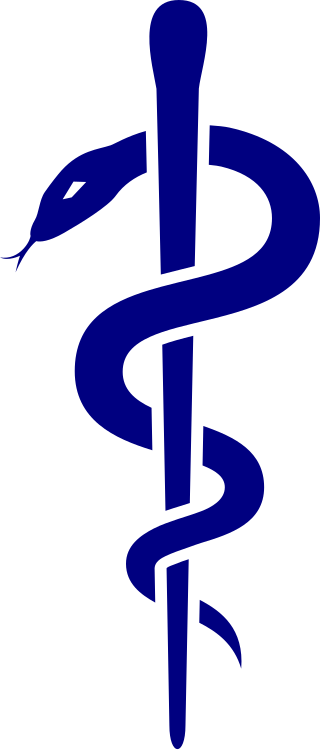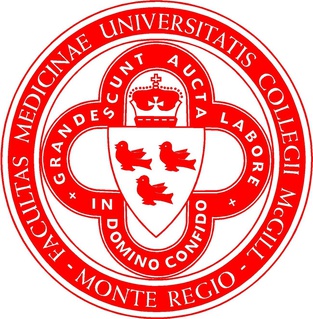Related Research Articles

Medicine is the science and practice of caring for a patient, managing the diagnosis, prognosis, prevention, treatment, palliation of their injury or disease, and promoting their health. Medicine encompasses a variety of health care practices evolved to maintain and restore health by the prevention and treatment of illness. Contemporary medicine applies biomedical sciences, biomedical research, genetics, and medical technology to diagnose, treat, and prevent injury and disease, typically through pharmaceuticals or surgery, but also through therapies as diverse as psychotherapy, external splints and traction, medical devices, biologics, and ionizing radiation, amongst others.

Ophthalmology is a surgical subspecialty within medicine that deals with the diagnosis and treatment of eye disorders.

The Tufts University School of Medicine is the medical school of Tufts University, a private research university in Massachusetts. It was established in 1893 and is located on the university's health sciences campus in downtown Boston. It has clinical affiliations with numerous doctors and researchers in the United States and around the world, as well as with its affiliated hospitals in both Massachusetts, and Maine.

Madras Medical College (MMC) is a public medical college located in Chennai, Tamil Nadu, India. Established in 1835, it is the one of the oldest medical colleges in India, as well as in Asia.
A medical specialty is a branch of medical practice that is focused on a defined group of patients, diseases, skills, or philosophy. Examples include those branches of medicine that deal exclusively with children (paediatrics), cancer (oncology), laboratory medicine (pathology), or primary care. After completing medical school or other basic training, physicians or surgeons and other clinicians usually further their medical education in a specific specialty of medicine by completing a multiple-year residency to become a specialist.

The Faculty of Medicine and Health Sciences is one of the constituent faculties of McGill University. It was established in 1829 after the Montreal Medical Institution was incorporated into McGill College as the college's first faculty; it was the first medical faculty to be established in Canada. The Faculty awarded McGill's first degree, and Canada's first medical degree to William Leslie Logie in 1833.
The Duke University School of Medicine, commonly known as Duke Med, is the medical school of Duke University. It is located in the Collegiate Gothic-style West Campus of Duke University in Durham, North Carolina. The School of Medicine, along with the Duke University School of Nursing, Duke University Hospital, Duke Regional Hospital, Duke Children's Hospital, Duke Raleigh Hospital, and other affiliated hospitals, clinics, and laboratories, make up the Duke University Health System. Established in 1925 by James B. Duke, the School of Medicine has earned its reputation as an integral part of one of the world's foremost patient care and biomedical research institutions.
Hugh Redmond Brady is an Irish academic, the 17th President of Imperial College London, and a professor of medicine. He was the 13th President and Vice-Chancellor of the University of Bristol. He is also President Emeritus of University College, Dublin (UCD), having served as UCD's eighth President from 2004 to 2013.
Petr Skrabanek was a doctor, physician, professor of medicine, and author of several books and many articles. Skrabanek was described by Ben Goldacre as "a lifelong champion of clear thinking, scepticism, and critical appraisal", and expressed vocal criticism of what he dubbed "cacademics", "quackupuncturists" and "nonsensus-consensus". Skrabanek was a polymath, loving jazz, history, literature, playing the piano. He spoke several languages thanks to which he was able to deeply study Joyce's last work - the avant-garde novel Finnegans Wake.
Clare O'Leary is an Irish gastroenterologist, mountain climber and adventurer. She was the first Irish woman to climb Mount Everest and complete the Seven Summits.
John Benignus Lyons, better known as J. B. Lyons and widely known as Jack Lyons, was an Irish physician, medical historian, writer, and professor of medical history. He was described as "one of the foremost Irish medical writers of the twentieth century".

Dame Parveen June Kumar is a British doctor who is currently Professor of Medicine and Education at Barts and The London School of Medicine and Dentistry. She worked in the NHS for over 40 years as a consultant gastroenterologist and physician at Barts and the London Hospitals and the Homerton University Hospital. She was the President of the British Medical Association in 2006, of the Royal Society of Medicine from 2010 to 2012, of the Medical Women's Federation from 2016 to 2018 and of the Royal Medical Benevolent Fund from 2013 to 2020. She was also Vice President of the Royal College of Physicians from 2003 to 2005. In addition, she was a founding non-executive director of the National Institute of Clinical Excellence, chaired the Medicines Commission UK until 2005, and also chaired the BUPA Foundation Charity for Research until 2013.
Sir Huw Jeremy Wyndham Thomas is a British gastroenterologist at St Mary’s Hospital, London, and professor of Gastrointestinal Genetics at Imperial College London and St Mark's Hospital.
Amit Prabhakar Maydeo is an Indian gastroenterologist and endoscopy expert known for his pioneering efforts on therapeutic endoscopy and endoscopic retrograde cholangiopancreatography (ERCP). In 2013, he was honoured by the Government of India with the Padma Shri, the fourth highest civilian award, for his contributions to the fields of medicine and medical education. His son, Dr. Rohan Maydeo, is a surgeon from MGM Medical College and Hospital, Aurangabad.
Natesan Rangabashyam (1936–2013), popularly known NR, was an Indian surgical gastroenterologist and medical academic, known for his pioneering efforts in the fields of surgical gastroenterology and proctology in India. He was known to have established the department of Surgical Gastroenterology at Madras Medical College and introduced the first MCh course in Surgical Gastroenterology in India. A former honorary surgeon to the President of India, he received B. C. Roy Award, the highest Indian award in the medical category, twice. The Government of India awarded him the third highest civilian honour of the Padma Bhushan, in 2002, for his contributions to medical science.
Mary Horgan is an Irish physician in infectious diseases and president of the Royal College of Physicians of Ireland. She is a member of NPHET, a consultant at Cork University Hospital and the dean of the University College Cork School of Medicine.
Eoin O'Brien LRCP&SI, FRCP, FRCP, is an Irish clinical scientist. He has published extensively on hypertension as one of the major causes of death and disability in society.. Alongside his medical career, O'Brien has contributed to the field of literary criticism and biography. He has written books on writers and artists including Samuel Beckett, Nevill Johnson and Con Leventhal.
Alexander Paton was a British gastroenterologist, writer and postgraduate dean for North-West London hospitals, who was a specialist in alcohol misuse.
Alan Desmond is an Irish consultant gastroenterologist and writer known for his advocacy of plant-based nutrition.
Dr. Bertram Welton Sippy was an American gastroenterologist, notable for developing the Sippy regimen for the treatment of peptic ulcer disease.
References
- 1 2 "Pandemic could have been so much worse says doctor who has critiqued medical profession". The Irish News . 4 March 2021. Retrieved 4 July 2022.
- 1 2 "Seamus O'Mahony – APC Faculty". University College Cork. Retrieved 4 July 2022.
- 1 2 3 Hourican, Emily (14 March 2021). "'I feel like a civilian for the first time in decades' – retired consultant Seamus O'Mahony has a cure for modern medicine". Irish Independent . Retrieved 4 July 2022.
- ↑ Smith, Richard (4 March 2021). "Richard Smith: The medical apostate's tale". BMJ . Retrieved 4 July 2022.